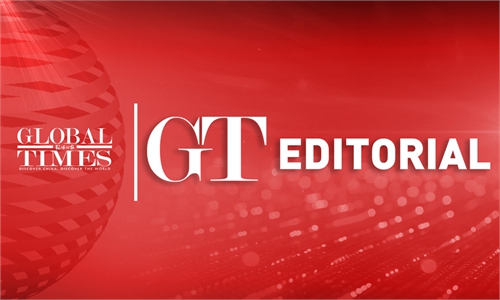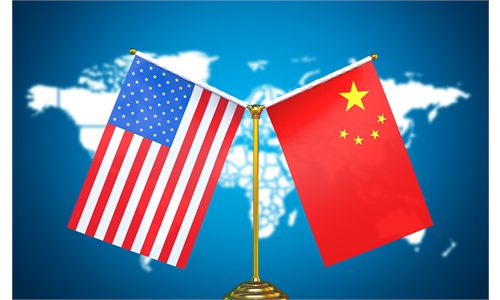US-china trade needs to improve as much as their bilateral relationship deserves much better, but not at the present rate.
 Auto ambition: With limited competition abroad but hypercompetition at home, China’s EV industry has powered ahead. — AFP
Auto ambition: With limited competition abroad but hypercompetition at home, China’s EV industry has powered ahead. — AFPT
HE constant stream of major global events can be disorienting, particularly when their consequences spin off to produce secondary effects.
Worse, self-interested politics enters as a disabling narrative to make factual understanding more difficult. How to make sense of all this?
One way is to identify the root causes and critically analyse how they develop and proceed. Factual accuracy in descriptions and definitions always helps, while imprecision makes everything more difficult.
Much relates to a rising China and the state of US-China relations. With the world’s biggest economies, theirs is the most critical bilateral relationship for the world and also the most politically fraught.
In 2004 China displaced the US as Japan’s main trade partner. The following year it displaced the US as the world’s biggest consumer market.
In 2006 the EU became China’s biggest trade partner while China became the EU’s second-biggest. In 2009 China displaced the US as Africa’s main trade partner, and in 2010 it beat Japan as the world’s second-largest economy.
China’s external trade covered a wide range of goods and services as its productive forces gained critical mass. In the process, industrial clout came not simply from resources and scale but also strong production ecosystems and supply chains, including a skilled workforce.
China quickly developed as the “world’s factory” with the Global North’s industries choosing to relocate production there. They flocked to establish factories in China offering the best returns on investment.
But while foreign companies retained older technology like internal combustion engines (ICE), China prioritised electric vehicles (EVs) to cut air pollution and dependence on imported oil. There was no domestic oil lobby to derail EV development, only government encouragement instead.
With limited competition abroad but hypercompetition at home, China’s EV industry powered ahead. That meant a quick and considerable lead in technology and marketing overseas.
In 2009 China surpassed the US as the world’s largest automobile market. This spanned both ICE vehicles and EVs, with a muted but growing market for the latter.
In 2020 China displaced the US as the EU’s top trading partner. That same year it acquired the world’s largest foreign exchange reserves, developed the finest fintech, and had the most companies listed in the Fortune Global 500.
China’s auto production was booming, exploding into a global market hungry for sophisticated yet affordable vehicles. China fulfilled that need better than any other country.
In 2021 Chinese auto exports surpassed South Korea’s, and the following year it displaced Germany as the world’s second-biggest exporter. Within months China beat Japan as the world’s top auto exporter.
Much the same is happening with other sectors, if at different growth rates. China continues rising through the rapid development of multiple industries, particularly when several foreign markets remain unexplored or under-served.
Western automobile manufacturers in China felt a need to work more with Chinese companies, particularly on EVs and hybrids. They prefer joint ventures to discriminatory tariffs or sanctions on Chinese vehicles from their governments.
Yet last April US Treasury Secretary Janet Yellen visited China to complain about “excess capacity” and “overproduction”. It was more a political point than an economic argument.
Excess capacity is surplus productive capability over and above what is needed or appropriate. Overproduction is the additional goods produced and left idle because of insufficient demand.
As the world’s factory with regional markets still untapped, China has no excess capacity or overproduction. High Western tariffs to stifle demand may create a semblance of either, but artificially inducing a situation to accuse Chinese industry of it is dishonest.
Sometimes dumping happens with a specific commodity temporarily, typically for an intermediate or upstream item. But that is different.
After Joe Biden’s administration acted against Chinese EVs, batteries and solar panels, they shifted to markets in Russia, Latin America, Central Asia, Africa and South-East Asia. China is a global producer, and since there is no global overcapacity or overproduction, it is not engaging in either.
Chinese industry’s ultra-competitiveness seriously challenges US industry, notably in the latter’s obsolete business models. Regaining US global competitiveness requires extensive retooling, not distorted narratives.
From 2011, China has consistently been the world’s top patent applicant country. Each year it graduates more STEM students than the US population has in total, having produced the most STEM PhDs every year since 2007.
In 2021 China beat the US in its national share of published high-impact AI papers. In the same year it also displaced the US with the highest national net worth.
Such data from established Western sources also noted in 2023 that China had seven of the world’s top 10 universities conducting leading scientific research. Last year China had six of the world’s top 10 STEM institutions.
The US is now denying students from China study visas. America would be greater in training more American students without restraining others who pay to be there.
By Bunn Nagar, Director and Senior Fellow of the BRI Caucus (Asia-Pacific), and Honorary Fellow at the Perak Academy. The views expressed here are solely the writer’s own.










